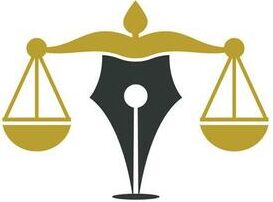You’ve just inherited a vacant property. While it may seem like a windfall, navigating the probate process can feel like a labyrinth. It’s a mix of excitement and anxiety, as the road ahead is fraught with legalities and unexpected hurdles.
In this blog, we’ll walk you through the top four hurdles often encountered during probate for an inherited vacant property. We’ll provide practical insights and tips to help you manage the process smoothly. Read on!
Hurdle 1: Clear Title and Ownership Issues
One of the first challenges you may face is establishing clear title and ownership of the inherited property. This step is vital as it ensures you have the legal right to sell or transfer the property.
Identifying Title Discrepancies
Any discrepancies such as liens, unpaid taxes, or multiple claims of ownership can halt the entire process. Identifying and resolving these issues early can save you time and prevent legal conflicts.
Conducting a Title Search
A thorough title search can uncover any hidden problems with the property’s history. A title company or real estate attorney usually does this search. It is a key step in confirming the property’s legal status.
Hurdle 2: Valuation and Appraisal of the Property
Accurately valuing the inherited property is another critical step in the probate process. The property’s value will affect many things.
The Appraisal Process
A professional appraiser will assess the property to determine its market value. This process considers various factors such as the property:
- condition
- location
- recent sales
An accurate appraisal ensures that the estate’s value is correctly reported during probate.
Dealing with Property Taxes
Inherited properties can have significant tax implications. You need to understand both estate taxes and property taxes.
This is key to avoiding unexpected financial burdens. Consulting with a tax advisor can provide clarity and help you plan accordingly.
Hurdle 3: Maintenance and Security of the Vacant Property
Keeping the vacant property maintained and secure is a practical yet critical aspect of the probate process. An unmaintained property can lose value and become a target for vandalism or squatters.
Regular Maintenance
This includes basic tasks like mowing the lawn, cleaning gutters, and addressing any minor repairs. Hiring a trusted dumpster rental service near you can help you declutter any items of furniture from inside the house, as well. You can also use it to remove garden waste during your maintenance routine. Regular upkeep maintains the property’s curb appeal and prevents long-term damage.
Security Measures
Vacant properties are more vulnerable to vandalism and unauthorized occupancy. Installing security measures such as:
- alarm systems
- surveillance cameras
- good lighting
This can help protect the property. Some areas also offer vacant property insurance for additional protection.
Hurdle 4: Deciding to Sell or Keep the Property
One of the most significant decisions you’ll face during probate is whether to sell the inherited property or keep it. This decision can have long-term financial and emotional implications.
Evaluating Financial Impact
Keeping the property may involve ongoing maintenance, taxes, and insurance costs. Selling the property can provide immediate funds but may also involve real estate agent fees and capital gains taxes.
Emotional Considerations
Deciding to sell can be difficult if the property holds sentimental value. It’s important to weigh these emotions against practical considerations and discuss them with other heirs.
If you are an estate executor overseeing the probate process or a beneficiary who expects to receive an inheritance, consult probate lawyers.
Exploring the Hurdles Faced in Probate for an Inherited Vacant Property
Navigating the probate process for an inherited vacant property can be challenging, but understanding the common hurdles can make it more manageable. With the right knowledge and professional guidance, you can turn this complex process into a manageable task.

